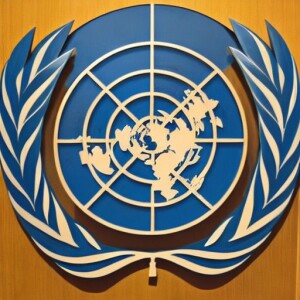The United Nations (UN) extends far beyond its status as a conventional international organization; it emerges as a beacon of hope, born out of the aftermath of the devastating World War II. Its establishment on October 24, 1945, carried with it an explicit mission: to foster peace, security, and cooperation among nations. Nestled amidst the bustling heart of New York City, the UN’s global headquarters serves as a symbol of unity, encompassing a diverse membership of 193 nations. Together, these countries address urgent global concerns through specialized agencies, programs, and bodies spanning various domains, including human rights, health, education, economic development, and environmental protection.
At the core of the UN’s mission resides an unwavering dedication to safeguarding peace and security on a global scale. Be it war-ravaged territories or simmering conflicts, the UN deploys peacekeeping operations, mediates disputes, and delivers essential humanitarian aid. Empowered by the UN Charter, the Security Council possesses the authority to take action, even resorting to military intervention if necessary. However, the UN does face challenges in this domain. Its effectiveness hinges on the collaboration of member states, which can sometimes be hindered by conflicting interests or a reluctance to comply with resolutions.
Beyond its peacekeeping endeavors, the UN assumes the role of an ardent champion for human rights and social progress. The Universal Declaration of Human Rights, a monumental accomplishment adopted by the UN General Assembly in 1948, serves as a guiding principle. Upholding these fundamental rights and freedoms, the UN Human Rights Council diligently monitors and addresses violations across the globe. Dedicated agencies such as UNICEF and the World Health Organization tirelessly advocate for children’s rights and strive to enhance global healthcare. Through initiatives like the Sustainable Development Goals, which tackle pressing issues such as climate change, poverty, and inequality, the UN unquestionably occupies a leading position in the promotion of a better world for all.
The UN not only exists as an abstract organization but also functions as a vibrant platform where nations convene to engage in diplomatic negotiations, exchange ideas, and foster cooperation. The General Assembly, an annual congregation of representatives from each member state, convenes to discuss and make decisions on a wide range of global issues. In the General Assembly, each member state possesses an equal vote, ensuring that smaller nations have an equitable opportunity to voice their concerns and contribute to the decision-making process. Additionally, the UN provides a crucial space for countries to establish diplomatic relations, peacefully resolve disputes, and form multilateral agreements.
Undeniably, the UN has accomplished remarkable feats. However, it faces its fair share of challenges on its ongoing pursuit of fulfilling its noble mission. Financial constraints and the unequal distribution of resources persist due to the UN’s dependence on voluntary contributions from member states. While the UN’s decision-making process embodies democratic principles, it can often be sluggish and entwined in bureaucracy, impeding prompt responses to evolving crises. Furthermore, the effectiveness of the UN is inevitably curtailed by geopolitical tensions and power struggles among member states, as well as the veto power wielded by the five permanent members of the Security Council.
In conclusion, the United Nations remains an indispensable force, ceaselessly promoting peace, security, and cooperation among nations. It serves as a beacon of hope, providing a platform for diplomatic negotiations, confronting global challenges head-on, and upholding the rights of every individual. Despite the hurdles it encounters, the UN stands as a testament to the power of unity, serving as a vital forum where countries can unite, voice their concerns, and collectively work towards a more tranquil and prosperous world.

